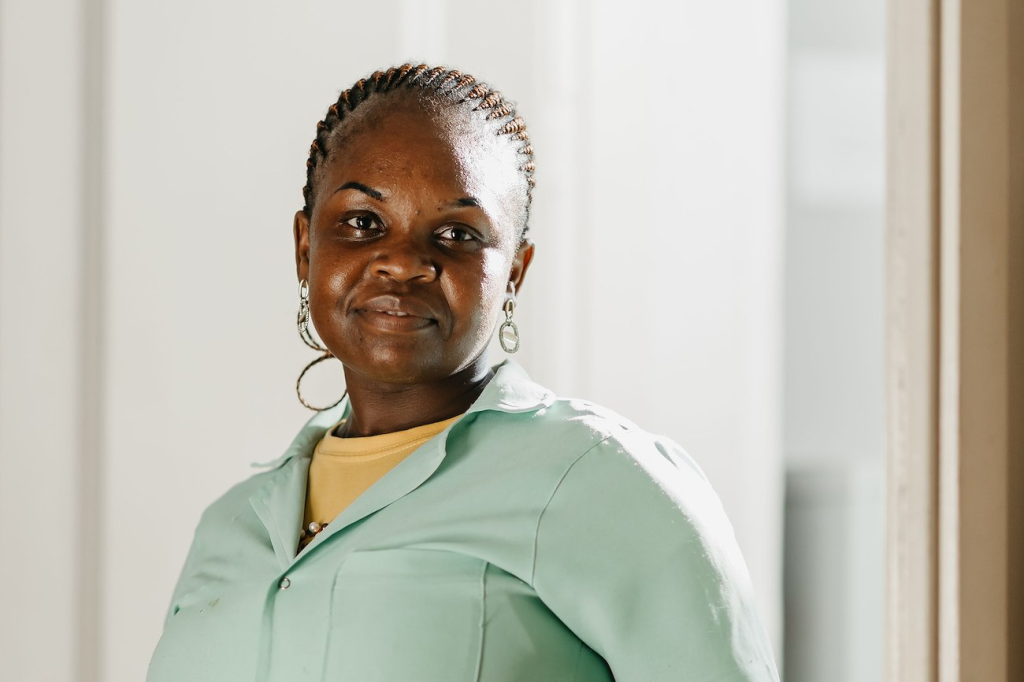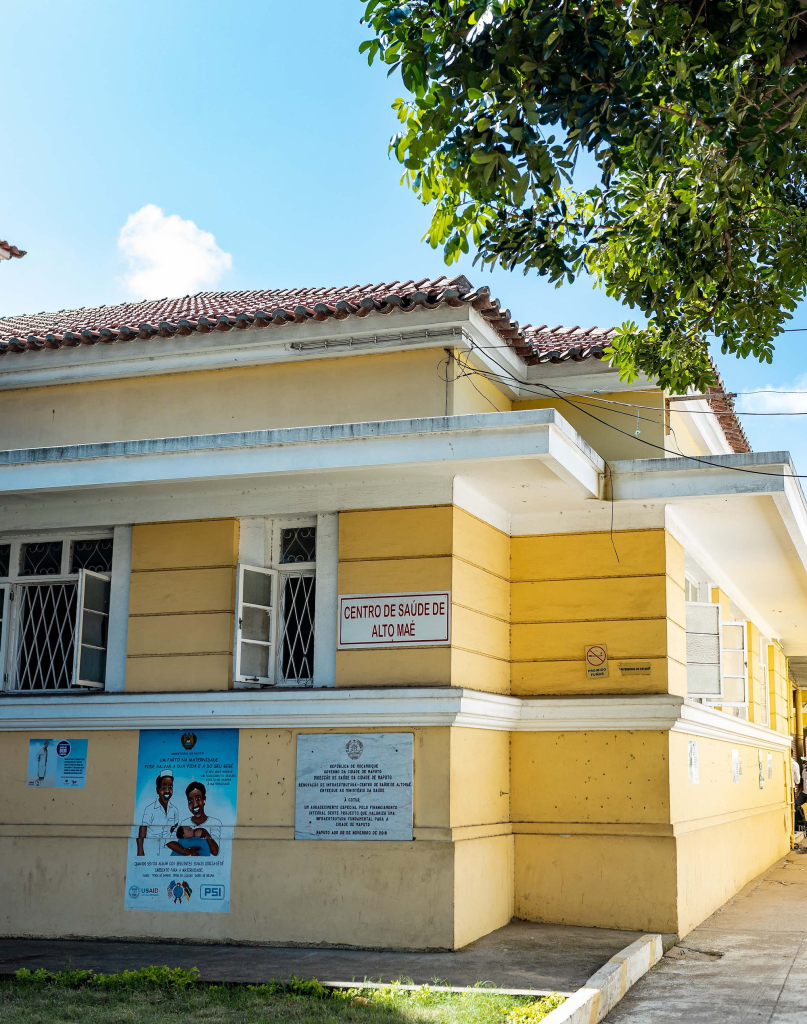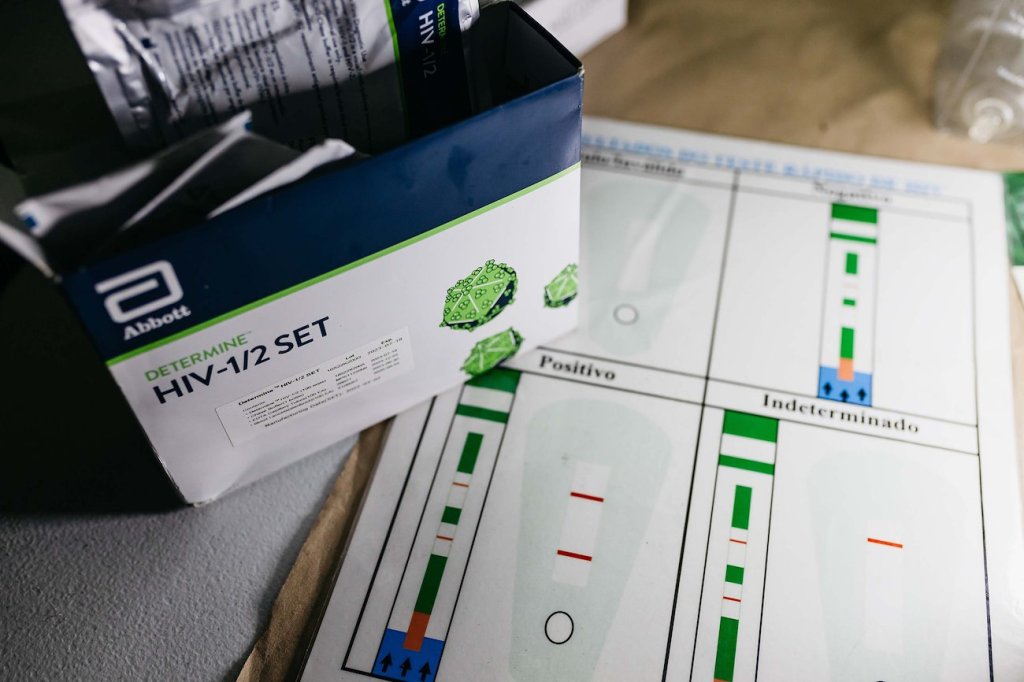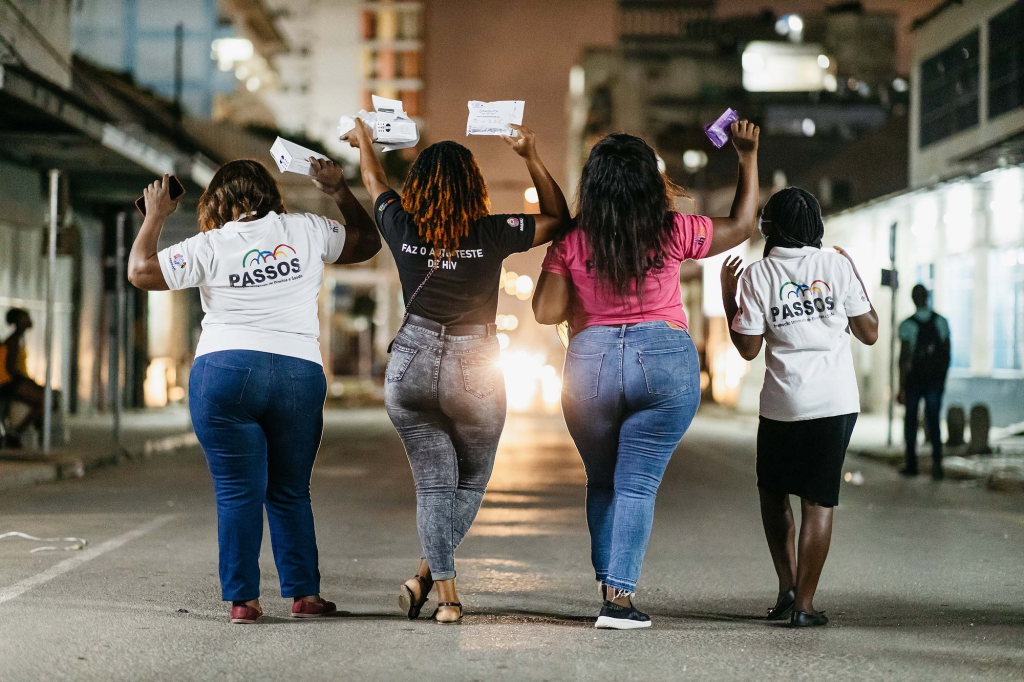First published on November 29, 2023 by FHI 360.
After giving birth to her fourth child, Marcela Samuel Tovela felt stuck. She was having trouble breastfeeding, and without support from her child’s father, she needed money to buy formula to feed her son.
Tovela became a sex worker to support her family, and not long after, she tested positive for HIV.
“When I found out, my life almost stopped,” she says. “I had children to take care of.”


Female sex workers are classified as a “key population” group. Key populations are identified by the World Health Organization and other organizations as having a higher likelihood of acquiring HIV. Others include men who have sex with men, transgender people, people who inject drugs, and incarcerated populations. In 2021, 70% of new HIV infections worldwide were among members of key populations and their sexual partners.
Tovela now works to raise awareness of HIV testing services amongst sex workers and their clients, as well as members of other key populations, in her home city of Maputo, the capital of Mozambique. For the last five years, she has worked with FHI 360 as a peer navigator at the Alto Mae Health Facility, which is run by Maputo’s city government health services. There, Tovela helps other people living with HIV navigate treatment.

At Alto Mae, Tovela receives patients referred by peer educators, who focus on linking community members with HIV prevention and testing services. Tovela also identifies patients in the clinic who could benefit from HIV services. She provides them with “extra support and confidence” while ensuring that everyone is treated with respect.
“I have strength to lift many sisters up, and they are lifting up themselves,” says Tovela. “And I am still here.”


Tovela’s work at Alto Mae began as part of the Integrated HIV Prevention and Health Services for Key and Priority Populations (PASSOS) project and continues under the PASSOS+ project. FHI 360 began implementing PASSOS in 2016, with the aim of reducing transmission of HIV and other sexually transmitted infections (STIs) among members of key populations in Mozambique.
As part of this work, PASSOS strived to reduce social and structural barriers caused by stigma and discrimination that often prevent members of key populations from accessing health care services. It was funded by the U.S. Agency for International Development (USAID) through PEPFAR (the U.S. President’s Emergency Plan for AIDS Relief).
Dr. Celma Ricardo, a clinical psychologist at Alto Mae, says that peer educators have encouraged members of key populations to come to the health facility by assuring them that they will receive stigma-free services.
“It is important for [these] population[s] to know that they are welcomed at the health facility,” she says, “that there is someone who thinks about them, that they won’t be discriminated against, that they won’t be stigmatized.”


For female sex workers, their high mobility can make it difficult for them to stay in HIV treatment. It can also be challenging for them to visit health facilities during regular business hours.
To help ensure that female sex workers and their clients have easy access to HIV testing and treatment, the PASSOS/PASSOS+ project oversees testing sites in areas frequented by these groups. This included downtown Maputo, also known as the “baixa” district.
Serafina Antonio, who supervises Alto Mae’s peer educators, says Fridays and Saturdays are the busiest days at the baixa testing site, when 20 to 30 people per day seek testing.
“Most of us don’t have time to get tested [at a clinic],” says Flora de Jesus Ussaca, who is a peer educator and a sex worker. She emphasizes the importance of protecting oneself. “I do this [work] because I want to help my peers,” she says.






Tovela, the peer navigator at Alto Mae, was a sex worker in the baixa when a peer educator helped her get tested for HIV about a decade ago. Now, Tovela says that when she helps female sex workers and members of other key populations get tested for HIV and other STIs, she knows they are vulnerable. She provides them services to “lift their spirits and show them that life doesn’t stop there,” she says.
To help ensure that sex workers feel comfortable at the health facility, Tovela coaches her nurse colleagues on how to provide friendly, accessible services.
The nurses “talk to [the sex workers] the same way that they talk to [any] person,” Tovela says. They “attend [to them] with love and affection.”

About This Story
FHI 360 implemented the PASSOS project from 2016 to 2023. It was funded by the U.S. Agency for International Development (USAID) through PEPFAR (the U.S. President’s Emergency Plan for AIDS Relief). The project is now known as PASSOS+ and is also funded by USAID through PEPFAR. The International Centre for Reproductive Health – Mozambique (ICRH-M) is leading the implementation of PASSOS+. FHI 360 is a sub-partner, supporting the project with capacity strengthening and technical assistance.
